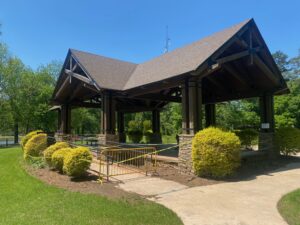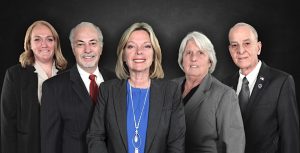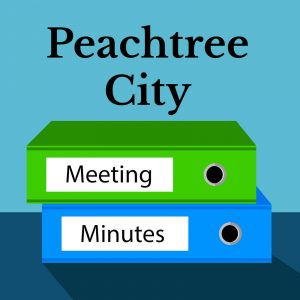T-Bagger, you chose to go with playground psychology. When someone switches from arguing facts to diagnosing personalities, it’s usually because…

A Dec. 6 workshop of the Peachtree City Council reviewed the Fiscal Year 2016 budget and looked ahead to several “horizon issues” facing the city.
Street resurfacing is one of the issues, and a costly one, that extends into the future. As a “horizon issue,” and at some point in the future, resurfacing must occur for the city’s 179 miles of roads and streets.
City staff reported that 36 percent of roadways, or 64 miles, fall below a rating of 80 and, for full-depth reclamation, would cost $30 million.
The current annual funding target is set at $1.8 million. A total of 4.03 miles was completed in 2015 and 2.89 miles in 2016 which also included speed tables and additional striping.
Staff recommend doubling the effort in FY 2018 to $3.7 million.
Roads continue to deteriorate each year, staff said, adding that without additional funding the city will fall behind.
On another horizon issue, staff recommended maintaining the $1.7 million funding level in FY 2018 for cart path maintenance. That work should only be enhanced through one-percent sales tax funding. That initiative goes before voters in March.
Another horizon issue, building and facility maintenance had $383,000 budgeted for FY 2017. Staff recommended included $430,000 in additional funding in FY 2018. Even seemingly insignificant items will eventually wear out and need to be replaced, said City Manager Jon Rorie.
Intersection improvements along Ga. Highway 54 West at MacDuff Parkway and at Planterra Way each come with an estimated cost of $500,000.
Rorie at a previous meeting suggested the potential for using a portion of one-percent sales tax dollars, if approved by voters, to leverage outside dollars as a way to help pay for intersection improvements.
A look at the general fund budget for the next few years showed revenues expected to increase slightly. Revenues for FY 2018 are projected at $34.48 million, and with FY 2019 rising to $35.2 million and FY 2020 at $36.1 million.
A slight millage rate decrease is expected beginning in FY 2018 and running through FY 2020.
The FY 2016 budget totaled $33.519 million and included $769,598 in reserves. Revenues for the FY 2017 budget totaled $33.8 million with reserves at 33 percent.
A review of 2016 general fund revenues showed 37.6 percent coming from property taxes, 19.9 percent from local option sales tax. Those represent the city’s largest revenue sources.
The city’s three largest expense categories in 2016 were fire/EMS at 21 percent of budget, police at 21 percent and public works at 18 percent.
Rorie also noted that city departments are instructed to target expenses at 98 percent rather than 100 percent.
Rorie was adamant that the city will operate within the constraints of the budget policy “every time.”
Stay Up-to-Date on What’s Fun and Important in Fayette
Help us keep local news free and our communities informed.
We’re committed to providing trustworthy, independent coverage of Fayette County, west Coweta, and the people and decisions shaping our shared future.
We’re a for-profit organization, so contributions aren’t tax-deductible—but they’re deeply appreciated.
Latest Comments
Benji – Once again you make huge, emotional, unfounded leaps to conclusions about someone you just want to disagree with,…
That’s excellent news, Benji! It makes my day to know that I brought a smile to someone so dreadfully and…












Leave a Comment
You must be logged in to post a comment.